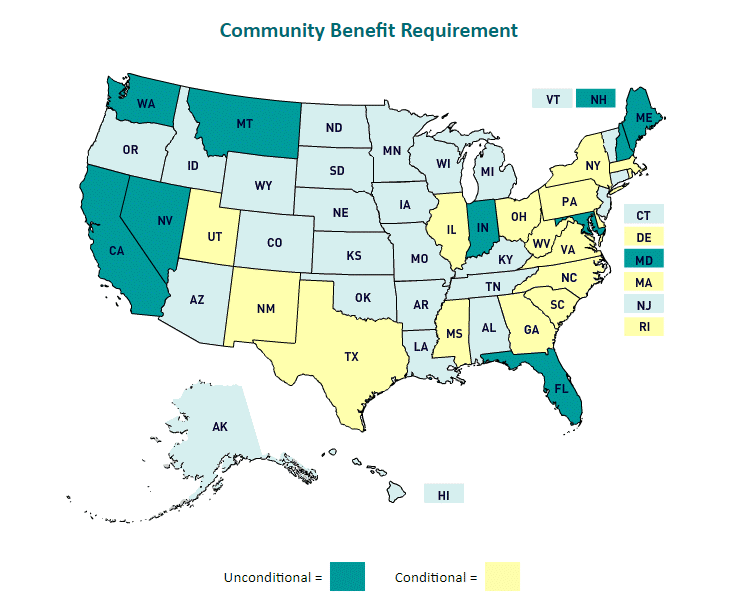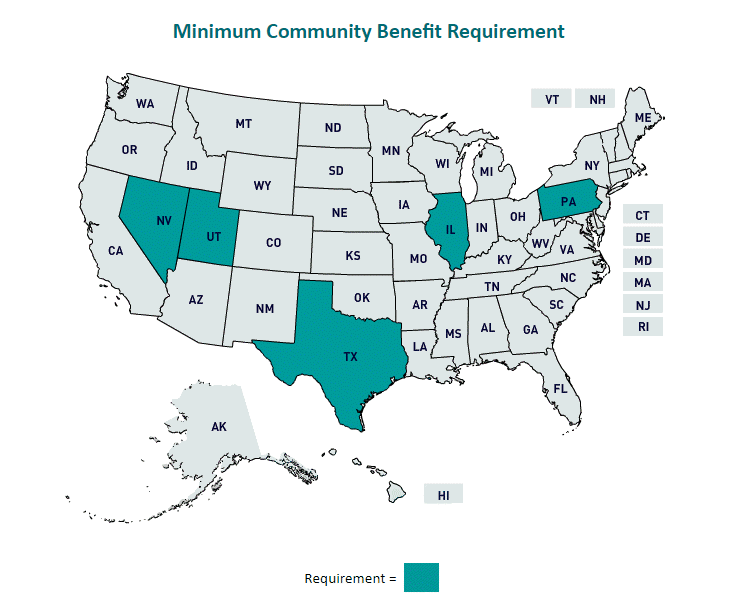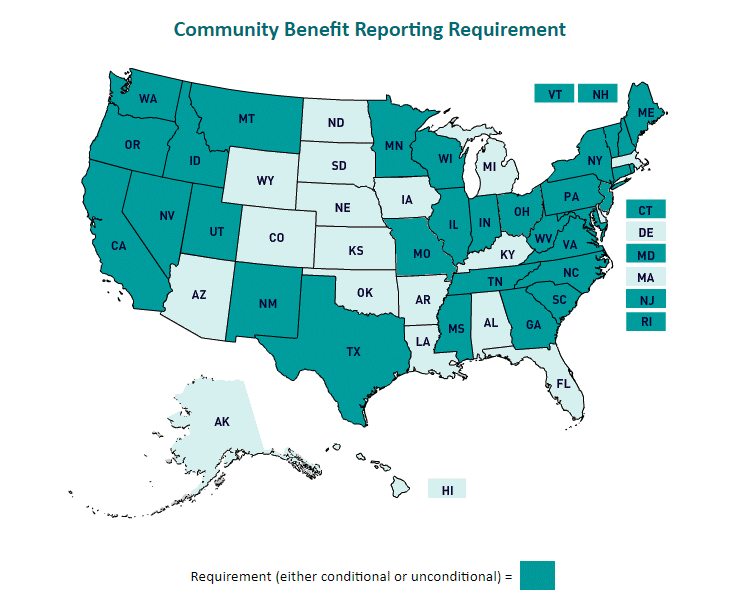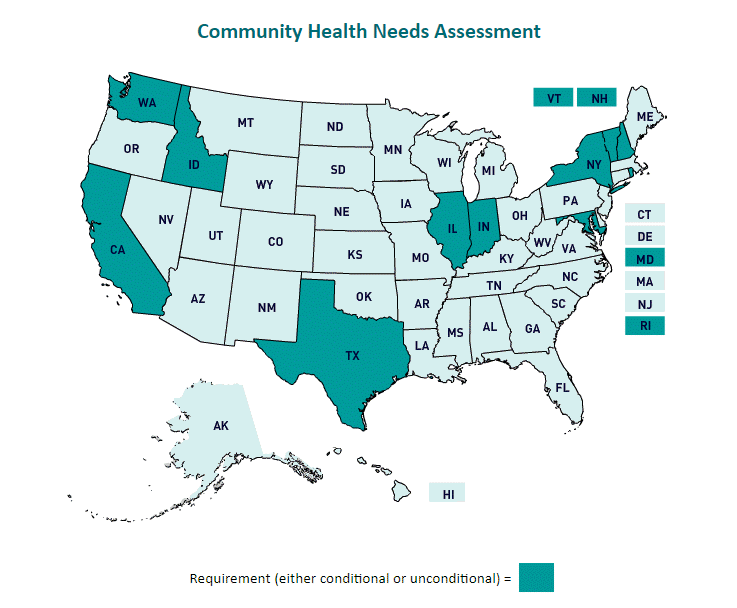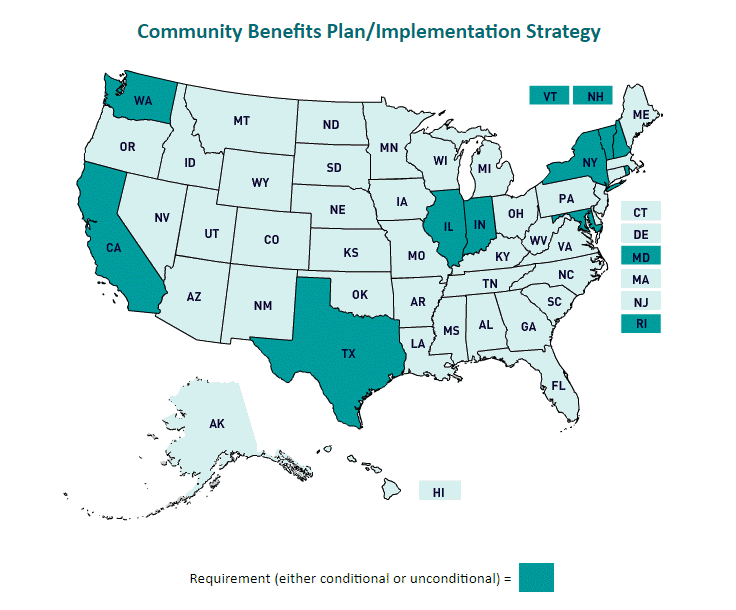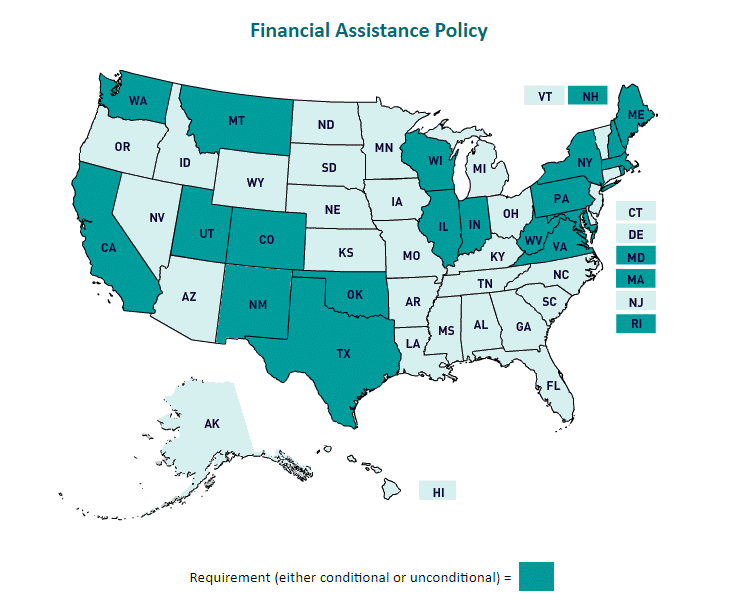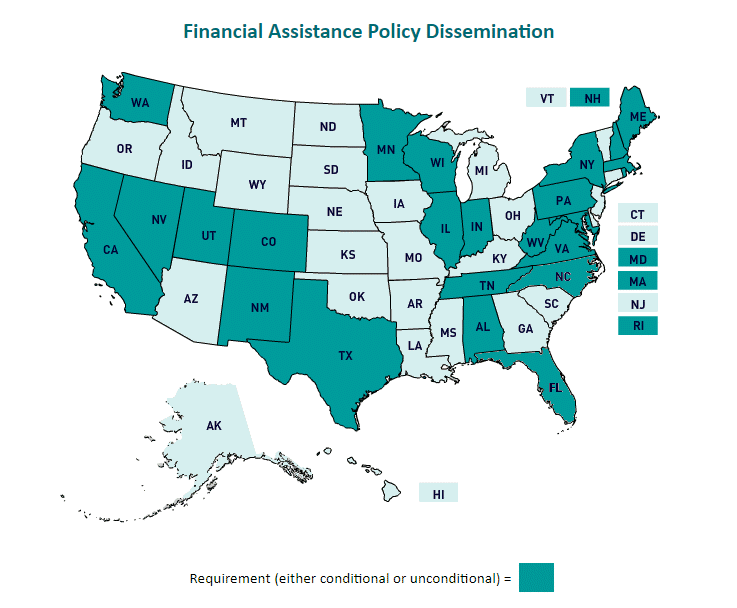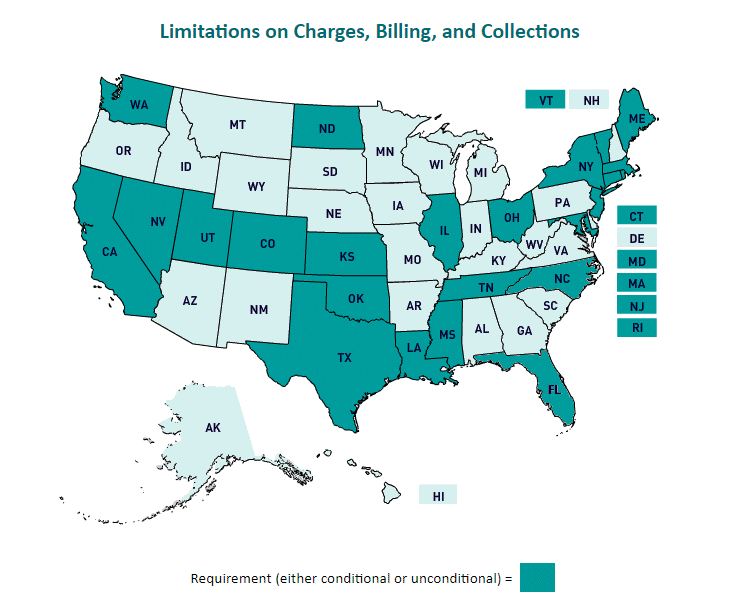State Community Benefit Requirements and Tax Exemptions for Nonprofit Hospitals
| To see which states have a particular requirement, click on a symbol in the yellow row. You may also filter the requirements by selecting checkboxes in the Filter row and clicking on the Filter Requirements button. For detailed information about the requirement of a particular state, click on the symbol in the field at the intersection of the state's row and the requirement’s column. For example, to read about Alabama's financial assistance policy dissemination requirement, click on the square in the field at the intersection of the Alabama row and the Financial Assistance Policy Dissemination column to display the relevant text from the Alabama profile in a pop-up window. | ||||||||||||||
|
Instructional Video ------------------------ Select All States |
 Unconditional community benefit requirement Unconditional community benefit requirement Conditional community benefit requirement Conditional community benefit requirement Requirement (either conditional or unconditional) Requirement (either conditional or unconditional)Blank = No requirement |
 Click map icon to see which states
Click map icon to see which states
have that particular requirement |
 State tax exemption State tax exemption No state tax exemption No state tax exemptionBlank = State does not impose this tax |
|||||||||||
